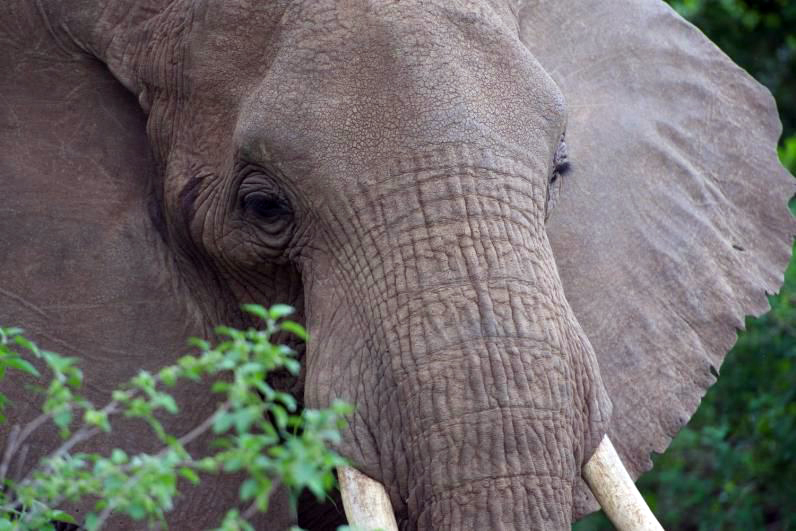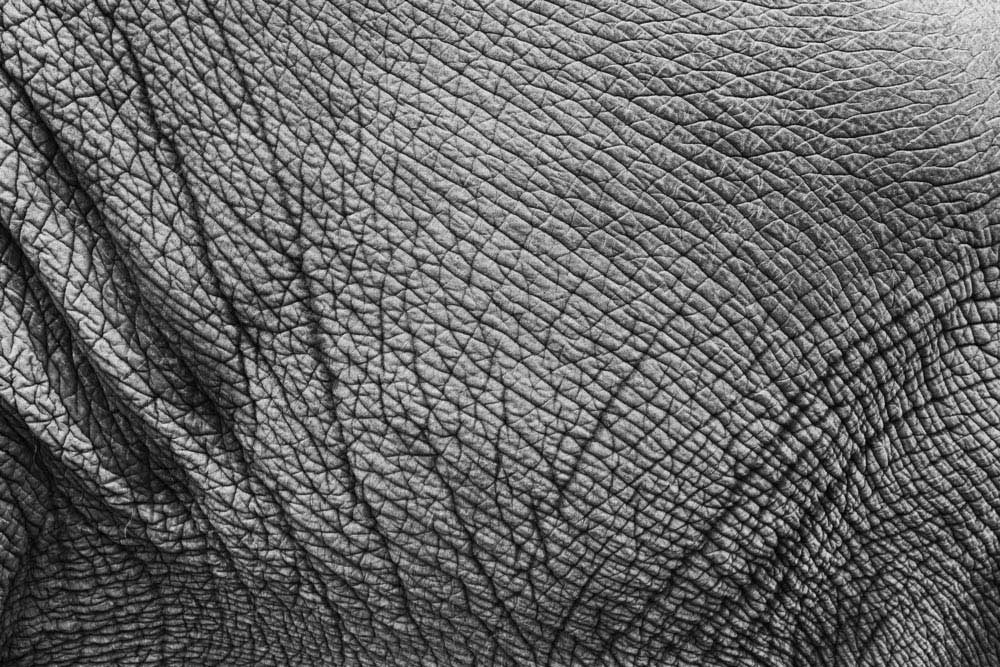
The animal’s crevice-filled skin helps keep it cool
The intricate network of crevices seen on the African elephant's skin helps it retain moisture and stay cool
The African bush elephants’ wrinkled skin is one of its most defining characteristics. The purpose of this patchwork pattern—it helps the animal stay cool by retaining moisture better than smooth skin—is well-known in the scientific community, but the secrets of its formation have eluded researchers.
Now, a study published in Nature Communications offers a surprising explanation for the emergence of elephants’ crevice-filled skin:
The skin of these animals is covered in an intricate network of minuscule, micrometre-wide crevices that retain water and mud. This helps protect the skin against parasites and solar radiation, while it also plays a significant role in regulating the elephant's body temperature and preventing dehydration.
African elephants—of which there are two species—lack the sweat and sebum glands that allow many other mammals to keep cool, so the only way they can avoid overheating in their hot, dry habitat is via the evaporation of water, which collects on their skin when they bathe, spray themselves or wallow in mud.
Thanks to their intricately cracked skin, they end up retaining five to 10 times more moisture than a smooth surface. As this trapped liquid evaporates, it enables elephants to regulate their body temperature and prevent dehydration. Mud stuck to the skin also helps the animals ward off parasites.
As Roni Dengler reports for Discover, the mammals’ skin thickens over time, with new layers placing pressure on the outermost sheet (the stratum corneum), leaving a web of cracks on the surface.
The researchers noticed that the cracking pattern on the elephant’s skin bore a striking resemblance to cracks that occur all over the planet from what scientists call tensile stress. This kind of stress causes the cracks in damaged asphalt, Earth’s polar landscapes and geological formations and therefore assumed that elephant skin fractured in a manner similar to that seen in dry mud or damaged asphalt.

However, the layers actually appeared to bend, generating a network of “micro valleys”
This intricate web of crevices adorns the wrinkly, grey skin of Africa’s bush elephants, Loxodonta Africana holds water, which helps keep the animals cool and prevents dehydration in their dry habitat. Now, scientists have figured out how the channels on African elephants’ skin form — the outermost layer of skin gets thicker and bends until the brittle material fractures from the strain.
It is very counterintuitive that cracking the skin could be beneficial," remarked researcher Michal Milinkovitch, a University of Geneva evolutionary biologist and biophysicist. As elephants age, their dead skin cells build up, eventually exerting enough pressure to generate physical cracks in the epidermis
Elephants’ singular skin actually has a lot in common with those of humans suffering from a skin disease ichthyosis vulgaris. This condition affects one out of every 250 people and prevents the shedding of dead skin cells.
Although this condition poses an obvious disturbance to humans, it’s highly beneficial for African elephants. As skin cells pile up, they exert enough pressure to bend the outer layer, creating the network of rivulets that helps them stay cool.
“If the skin was shedding, it would never get thick enough to generate the stress inside the little valleys of this lattice of elevations, and you would not have the cracks appearing,” said Milinkovitch . “In humans, this is not a helpful problem.”
At the most basic level, these findings are a new beautiful example of how physical processes are involved in the development of animal forms and shapes.
This research suggests that fractures form when the growth of new skin puts stress on the brittle, outermost skin layer. The findings offer fresh insights into how elephants beat the heat.



